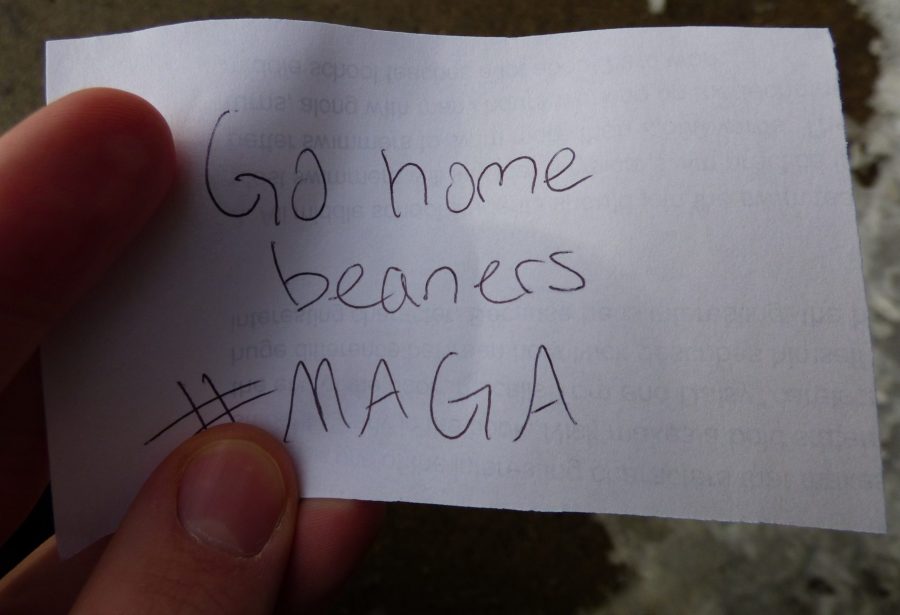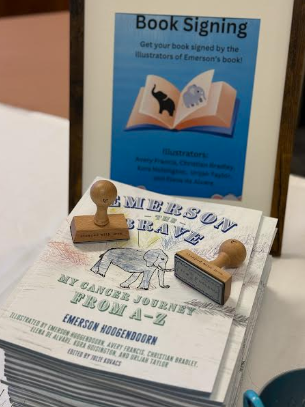Saturday, November 26, Sr. Isai Aragon is running an errand at Meijer. He has been fiddling with the radio ever since he got in the car, searching for a channel to listen to. He hovers around a couple different ones until he tunes into a Spanish channel. He rolls back to it and turns the knob on the radio to crank the volume up. After all, it’s not every day that a Spanish radio station has good music on.
As he pulls into the Meijer parking lot the loud music is acting to its full effect. The windows are down a bit, leaking the atmosphere that has encompassed Aragon in his car. Cars are all around the parking lot but nobody says a word if they notice the slight disturbance that Aragon has just made in the once quiet space. Aragon turns off the car and walks into Meijer to buy some groceries for his family.
Fast forward 15 minutes to when he comes back out, groceries in hand. As he walks to his car, he notices an out of place detail. A small square of paper sits on his windshield. He carefully picks it up. The anonymous hand-written message reads “Go home beaners #MAGA.”
The writing is in black pen. Obviously a spur of the moment thought scrawled on paper. Care and accuracy were not considered. Instead the note was hastily put together, the sloppy handwriting standing as evidence. The message does not elicit a strong response from Aragon. He hops back in his car and places the note in the passenger seat along with the bags that he has just bought. Once home he does not complain right away to his parents. He decides instead to keep quiet. After all, what can a Hispanic boy do against the nation that has elected a president who emboldens the racists in our society?
Aragon decided to respond to the message of hate by being passive. When he finally told his parents they also reacted passively. There was no screaming or extreme signs of being upset. Nobody called the police. “What’s the point of trying to do something? It’s not like there’s a lot we could have done. Even like when people act out it doesn’t do anything. It doesn’t change anything,” Aragon said.
By reacting passively the intended effect of the paper was dissolved. Aragon and his parents reacted the way they did because they knew that they weren’t going to get a response of justice. They knew there was no way to find the person who wrote the message or find compensation for what happened, so instead they kept the incident quiet.
In the ten days after Trump became president-elect, there were 900 “hate incidents” similar to Aragon’s. Across the country, classmates tell black peers to sit at the back of the bus. Churches are spray painted with the words “White Only.” Of the 900 incidents, 280 have been motivated by anti-immigration sentiments. In Michigan alone, there were 40 reported incidents, ranking fifth most for a state behind California, Texas, New York and Washington. Public spaces have been the most common spot for incidents like these to occur, with 206 of these incidents happening in public. These statistics tell us that incidents like these are most likely to happen in places like sidewalks, stores and parking lots. The election of Trump has encouraged racists to say what they think about whoever they want.
The heat is getting hotter, digging its fingers into all corners of the country. It has infiltrated Holland and affected one of our very own West Ottawa students. Aragon’s case is not the only one by any means since the election of Trump; rather, the incidents have skyrocketed across the nation. We may only ever hear of these incidents, making it feel like easy statistics to ignore, but with each little note, each slip of paper, each implicit racist message, the talk starts to feel like a roar. With each new incident the oppression starts to hit a little closer to home, until eventually it hits right in the face and cannot be ignored anymore.







